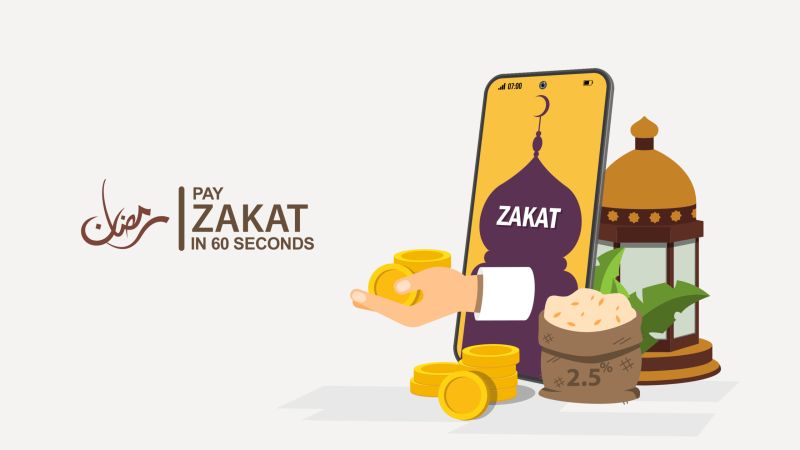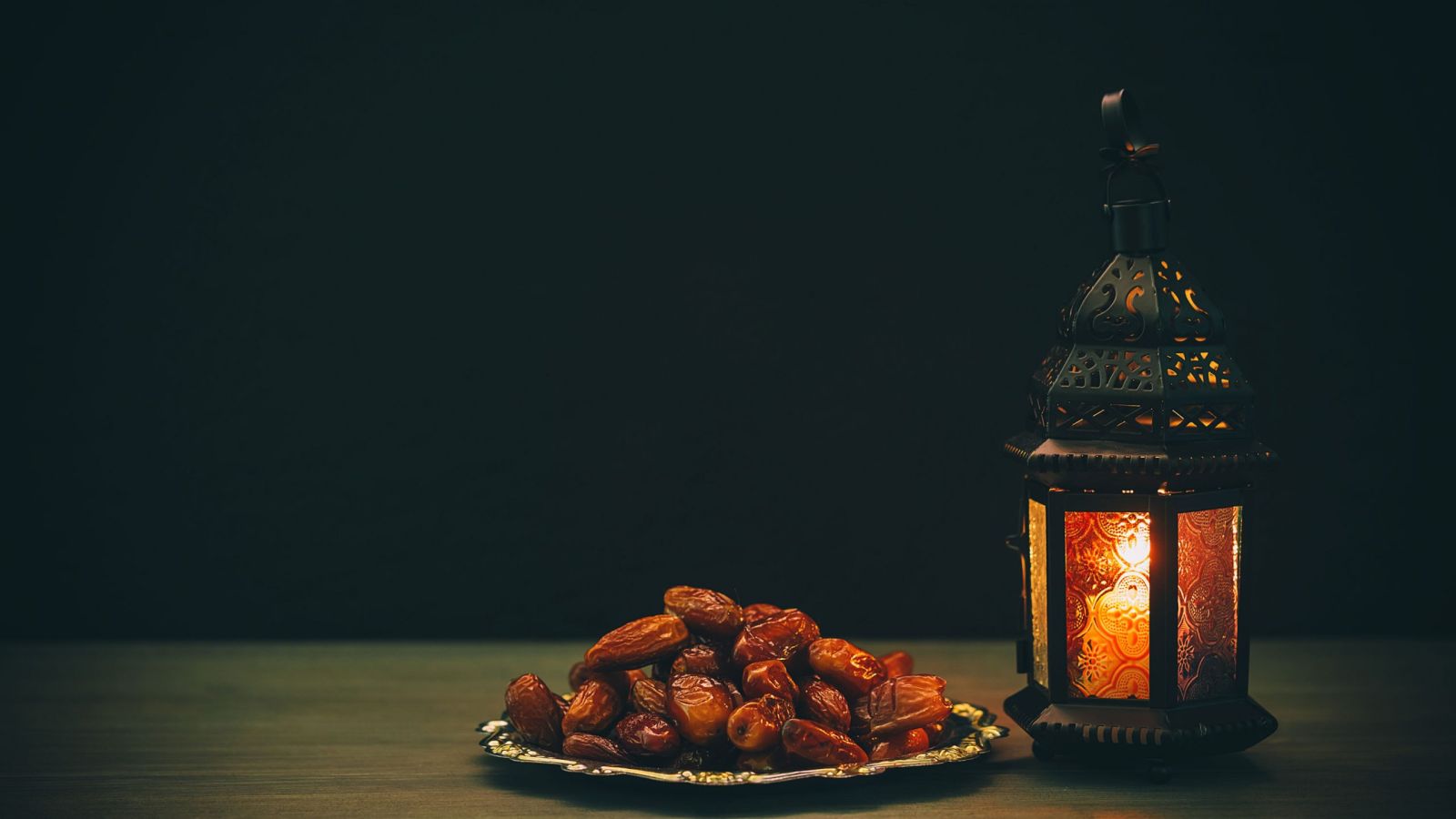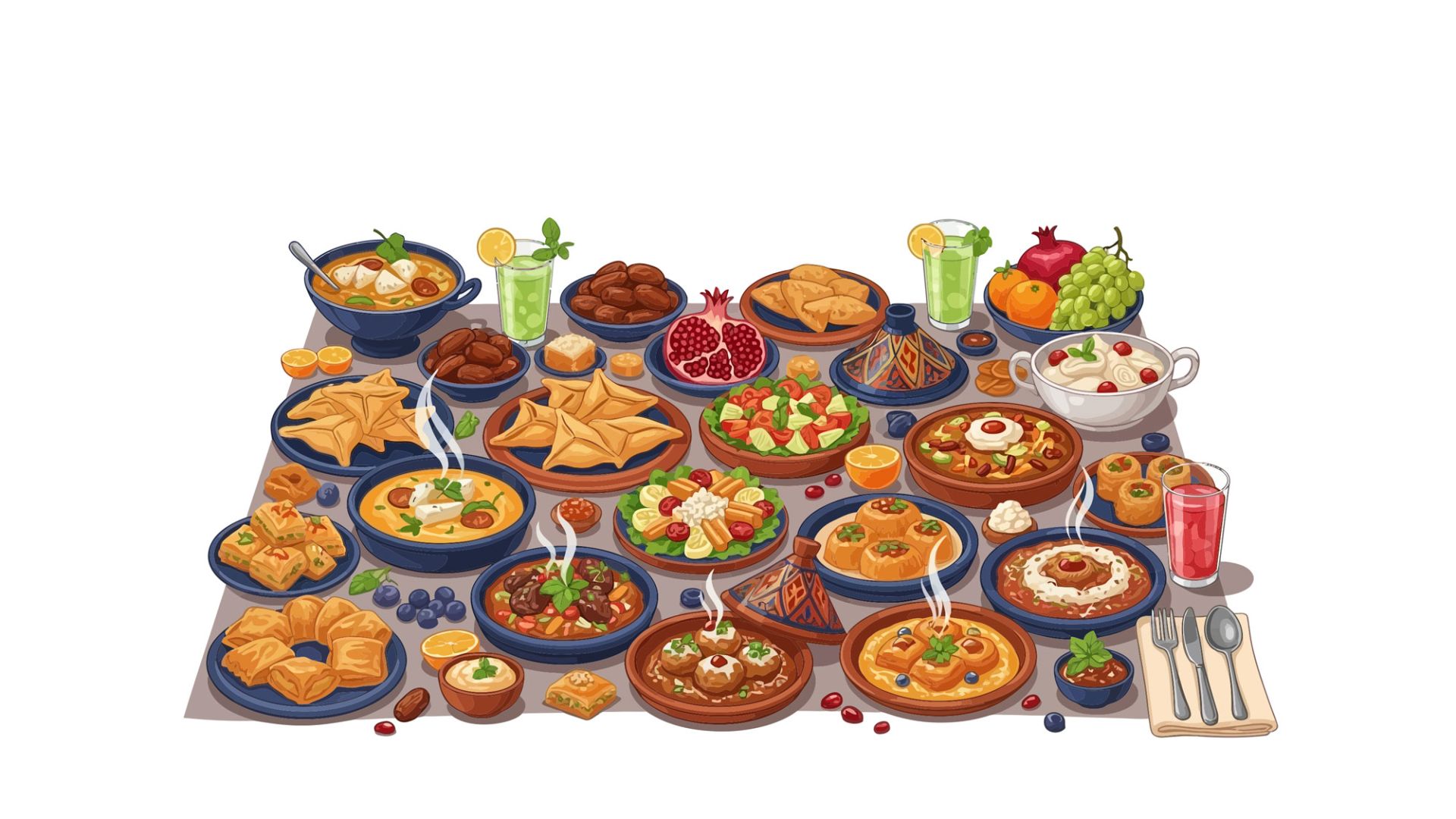The Payment of Zakāt al-Fiṭr in Money
Imām Muḥammad ibn Ṣāliḥ al-ʿUthaymīn
A discussion about the correct way in which the Zakāt (obligatory charity) is to be given. He also establishes the prohibition of paying this Zakāt in monetary funds, rather than food.
The Payment of Zakāt al-Fiṭr in Money
Imām Muḥammad ibn Ṣāliḥ al-ʿUthaymīn
A discussion about the correct way in which the Zakāt (obligatory charity) is to be given. He also establishes the prohibition of paying this Zakāt in monetary funds, rather than food.


Zakāt al-Fiṭr is not permissible except (to be paid) from food. And it is not allowed to discharge its value in money. This is because the Prophet (ﷺ) made it obligatory (to be discharged) from a sāʾ of dates or a sāʾ of barley.
Q.1 Is it permissible to discharge the obligation of Zakāt al-Fitr on the first day of Ramaḍān? And is it permissible to distribute it in money?
As for the discharging of it on the first day of Ramaḍān – there is Ikhtilāf (difference of opinion among the scholars) about it. The most correct opinion is that it’s not permissible, because it is called Zakāt al-Fitr, and Al-Fiṭr (ending of the fast) does not occur except at the end of the month. Also, the Messenger of Allāh ordered that it be discharged before the people go out to the Prayer (Ṣalātul-‘Eed). Along with that, the companions (Sahabah) used to give out the Zakāt al-Fitr one or two days before the ‘Eed. As for discharging the Zakāt al-Fitr in money, this is a point of Ikhtilaf (difference among the scholars). And the correct opinion – as I see it – is that it is not discharged except by (distribution of) food.
This is because Ibn ʿUmar said: “The Messenger of Allāh made obligatory (the payment of) Zakāt al-Fitr from a Saa’ of dates or a Saa’ of barley…”1
Abū Saʿīd al-Khudrī said: “We used to distribute it (Zakāt al-Fitr) in the time of the Messenger of Allāh as one sāʾ of food, and our food was dates and barley and raisins and cottage cheese…”2 So, it becomes clear from these two ḥadīth that it (Zakāt al-Fitr) is not discharged except from food. And the distribution of it in food displays it openly and shows it, and all of the members of the family know about it. In this way, there is an exhibition or manifestation of this aspect of the religion.
As for discharging it in money, this causes it to be concealed (unseen), and perhaps the person may favour himself, by discharging it in money, and thus reduce its amount.3 Therefore, strictly following the Law (al-Qurʾān and Sunnah) is best and it is blessed. Someone might argue that the distribution of food doesn’t benefit the poor. (But, we say) the poor person – if truly poor – must definitely benefit from the food.
Q.2 Is it permissible to discharge Zakāt al-Fitr in money? – with mention of the evidences.
Zakāt al-Fitr is not permissible except (to be paid) from food. And it is not allowed to discharge its value in money. This is because the Prophet made it obligatory (to be discharged) from a sāʾ of dates or a sāʾ of barley.
Abū Saʿīd al-Khudrī said: “We used to discharge it (Zakāt al-Fitr) in the time of the Prophet as a sāʾ’ of food…”.4
Therefore, it is not lawful for anyone to discharge Zakāt al-Fitr from money (dirhams) or clothing or household furnishings. Instead, that which is obligatory is to discharge it in what Allāh has made obligatory on the tongue of the Prophet .There is no consideration (weight) for the Istiḥsān [viewing of something to be good, without basis from the legal sources of Qurʾān and Sunnah] of those of the people who viewed the giving of money as a good thing. The Law (Sharīʿah) does not follow (i.e. it is not secondary to) the opinions of people.
No, it (the Law) is from the One Who is Wise, Knowing -Allāh – The Mighty, The Glorious, The Most Knowing, The Most Wise. So, if that which has been made obligatory by the tongue of Muḥammad is a sāʾ of food, then it is not permissible to bypass (skip over) that, no matter what our intellects make us to view as being good. Instead, it is a must that the human being question and suspect his intellect and views if it conflicts with, or contraḍīcts, the law of Allāh.
Q.3 What is the ruling in the case of someone compelled to discharge Zakāt al-Fitr by money? And does it fulfill for him his obligation?
It appears to me that if someone is compelled to discharge the Zakāt al-Fitr by money, then he should give them the money, and not openly disobey those in authority. But, as far as that which is between him and Allāh, he should discharge what he has been commanded by the Prophet to discharge. So, he should discharge a sāʾof food as the Prophet commanded. Their compelling you to discharge it from money is compulsion to do something which Allāh has not legislated. In that case, you must fulfill what you believe to be obligatory.
Q.4 Is it permissible to discharge Zakāt al-Fitr from meat? Some of the desert dwellers don’t have food to distribute for Zakāt al-Fitr, so is it permissible for them to slaughter some of their animals and distribute it to the poor? Answer
This is not correct, because the Prophet made it obligatory to give one sāʾ of food, while meat is measured by weight (not by volume).
Ibn ʿUmar t said: “The Messenger of Allāh made obligatory the Zakāt al-Fitr as a sāʾ of dates or sāʾ of barley…”5
And Abū Saʿīd al-Khudrī t said: “We used to discharge it (Zakāt al-Fitr) in the lifetime of the Prophet as a sāʾ of food, and our food was dates, and barley, and raisins and cottage cheese “6
For this reason, the strongest opinion of the sayings of the scholars is that Zakāt al-Fitr is not fulfilled by paying (distributing of) money, nor clothing, nor furnishings (furniture). There is no weight to the sayings of those who say that Zakāt al-Fitr is fulfilled by payment of money; this being so because as long as we have in front of us a text of the Prophet ( then there is no opinion (in the matter) after his, nor accepting as good what the intellect considers good while negating the Law (the Qurʾān and Sunnah). Allāh U will not ask us about the opinion of so and so on the day of Resurrection. He will only question us about the saying of the Messenger (ﷺ) as in His (Allāh’s U) saying :
And ( remember) the Day (Allāh) will call to them and say: what answer gave you to the Messengers?7
Just imagine yourself standing before Allāh on the day of Resurrection while it had been made obligatory on you to fulfill the payment of Zakāt al-Fitr from Food. Will it be possible, if you are asked on the day of Resurrection: How did you answer the Messenger of Allāh in reference to the obligation of this charity? Will it be possible for you to defend yourself and say: By Allāh! this is the opinion of so and so, and this is the opinion of such and such? The answer: No! and even if you said that it would not benefit you (at all). The truth, without doubt, is that Zakāt al-Fitr is not accepted except food; and any food which is the staple food of the country fulfills this obligation.
If you see the opinions of the scholars in this issue, you will see that they are on two extremes and one in the middle. One (extreme) side says: Pay it (Zakāt al-Fitr) from food or pay it from cash (money). The other (extreme) side says: Don’t pay it from money, and don’t pay it from food except for five types only, that is: wheat, dates, barley, raisins, and cottage cheese. These two opinions are the extreme opposite of each other.
As for the middle opinion, it says: Pay it (Zakāt al-Fitr) from every food which the people are fed from, and not from that which the people are not fed from. So, pay it from wheat, dates, rice, pearl millets (dukhn), corn – and whatever is similar to that, – even to the extent if we accepted the idea that there is a place where the staple food of the people is meat, then we would pay it from meat. Based on this, it becomes clear that what the questioner mentioned about the people of the desert giving meat in place of (a saa’ of those staple items which are normally given as) Zakāt al-Fitr, does not fulfill the obligation of Zakāt al-Fitr.
The preceding Fatāwá (Legal Decisions) were taken from the book entitled “Fatāwá Ash-Shaykh Muḥammad Ibn Ṣālīḥ al-ʿUthaymīn (Hafizahu’llah -May Allāh Protect and Preserve him).
Endnotes:
[1] Bukhārī 2:579 One Saa’ is equal to four (4) Mudd, and one (1) Mudd is equal to the amount held by cupping the two hands together. It is a measure by volume not by weight
[2] Bukhārī 2:582
[3] As the amount would differ if we compare the value of one saa’ of dates to one saa’ of barley for example. Since a saa’ of barley is about 7 riyals ($2.00), while a saa’ of dates ranges -according to quality – from 25 riyals ($7.00) for a lesser quality to 42 riyals ($12.00) for a medium quality, to 175 riyals ($49.00) for the best quality per saa’.
[4] Bukhārī 2:582
[5] Bukhārī 2:579
[6] Bukhārī 2:582
[7] Al-Qasaas : 65
Most Popular: Last 30 Days

Everyone’s Speech Is Subject to Acceptance or Rejection Except the Prophet (ﷺ)

The Beautiful Names of Allāh: How to Practice What They Entail in Our Lives










